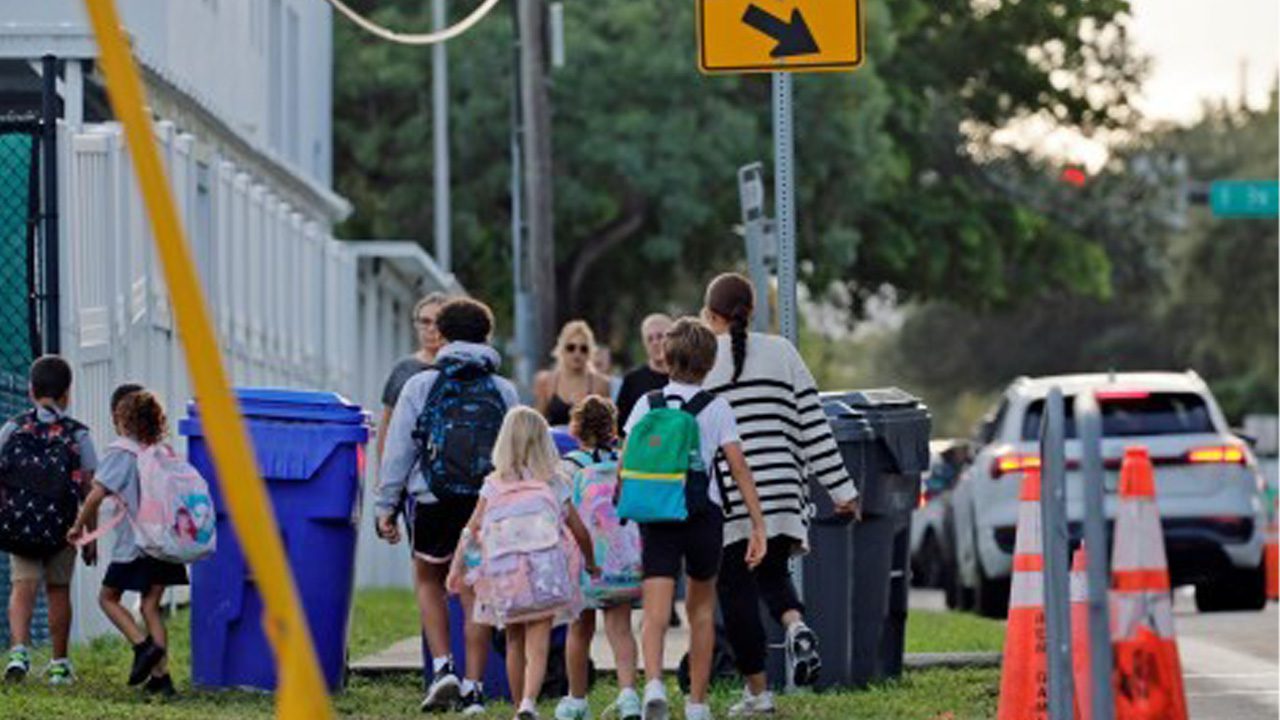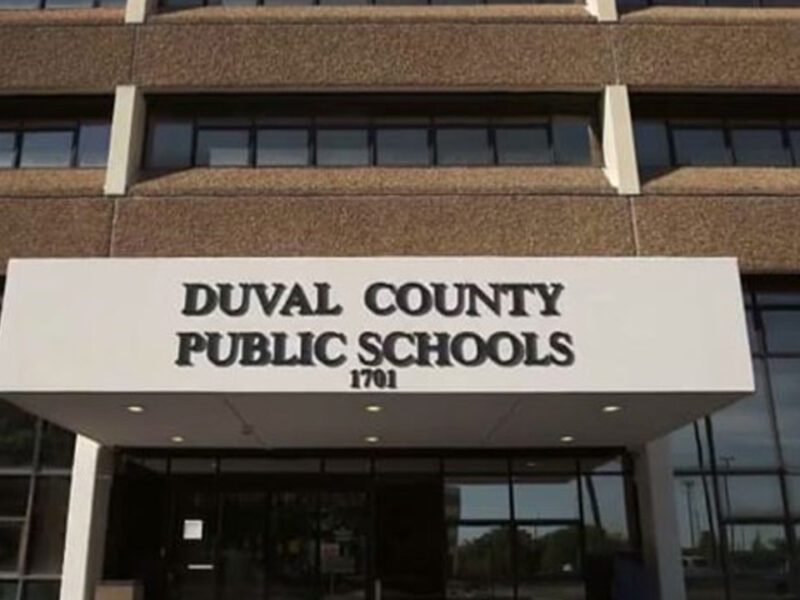
Charter schools could more easily take over district schools, under Florida bill
Sun Sentinel | By Scott Travis | April 3, 2025
Florida could see a surge in charter schools under a proposal that could make it easier and cheaper for them to operate.
A pair of bills that have been advancing the state Legislature would provide three new options for potential charter school growth.
— Parents at an existing public school could vote to convert the school into a charter school, and the district must provide the campus rent-free, even if the idea is opposed by teachers and administrators at the school.
— Cities could open a charter school as a “job engine,” or way to attract new industries, with families working in those industries getting priority for admissions.
— School districts with declining enrollment would need to take steps to dispose of surplus property, with priority use given to charter schools, as well as government recreation facilities and housing for teachers, emergency responders and military servicemembers.
Senate Bill 140, sponsored by Sen. Don Gaetz, R-Crestview, has sailed through two committees while House Bill 123, sponsored by Rep. Alex Andrade, R-Pensacola, has passed through one committee.
The bills are being closely watched in Broward County, which has battled with dramatic declines in student enrollment as well as an explosion of charter schools over the past 25 years. The district approved a plan this year to close one school and change the grade configuration or focus of several others in order to compete with charter schools.
“This is another giveaway to public charter schools, further tipping the playing field toward them,” Broward School Board member Allen Zeman told the South Florida Sun Sentinel.
Zeman said he would love to compete head to head with public charter schools,” but with state laws and regulations from the Department of Education, “this is not a fair game.”
Advocates of traditional public schools have argued for years that charter schools don’t face the same strict regulations as school districts, including which students they must accept, and often benefit large corporations that are hired to manage them.
Some Democrats voiced serious concerns about the bill during the recent hearings in the House and Senate.
“I really see this as another way to cause a slow death to our public education system,” State Rep. Angie Nixon, D-Jacksonville, said at a recent committee meeting. “What I see is the potential for folks to get free buildings, get state funding, and cherry-pick the students that come into these schools, and we shouldn’t be doing that.”
Supporters of the bill say it would remove some of the roadblocks charter schools often face from districts that don’t want the competition.
“We support laws that halt unnecessary burdens that charter school organizations experience, especially when they’re just trying to serve the families and students that they’re working with,” said Lynn Norman-Teck, executive director of the Florida Charter School Alliance, a charter school membership and advocacy group.
Many charter schools get shut out because they can’t afford to buy or rent facilities, said Nathan Hoffman, senior legislative director for the Foundation for Florida’s Future, which advocates for education reform.
“The buildings belong to taxpayers. Taxpayers have paid for these facilities to educate students in,” Hoffman said.
One part of the bill that makes some school districts nervous is the provision that allows charter schools to take over district-run schools and use the facilities rent-free. The charter schools would have to maintain the campuses and cover utilities.
This “conversion charter school” option has actually been allowed in state law since the late 1990s, and there are 23 of them, or 3% of all charter schools, according to state figures from 2002-23.
But in the past, a majority vote by teachers and parents has been required to convert. Teachers have often been reluctant to approve it out of concern that their jobs, salaries and benefits may not be protected, observers say.
Under the bill, teachers would no longer have a vote. A majority of parents must participate in an election, and a majority of those voting must say yes for the school to convert to a charter school.
“Removing teachers and staff from this decision-making is problematic,” Broward school district spokesman John Sullivan said. “Educators often dedicate much of their careers to a single school, providing stability and deep investment in the school community.”
Gaetz told the Senate Community Affairs Committee at a recent meeting that the bill doesn’t prevent educators from being involved and voicing their opinions about the proposed conversion. But he said it does prevent a teacher’s union from having veto power, something that charter school advocates say has happened in the past.
“We don’t want any one group to be able to veto or stop a majority of parents if they want to make this school choice option available in their community,” Gaetz said at a March 26 meeting of the Senate Community Affairs Committee.
The school would then have its own governing board and would likely partner with a management company, a city, a university or a nonprofit agency.
The bills also would allow cities to open new charter schools, or convert existing district schools, as a way to attract new businesses. The children of those employees would get preference in attendance.
Some cities already have their own charter schools, including Pembroke Pines and Coral Springs in Broward County, Cape Coral in Lee County and Belle Isle in Orange County.
Pembroke Pines operates one of the largest and most successful charter school systems, with five A-rated schools. The city opened the schools in the late 1990s and early 2000s after the Broward school district was slow to build new schools to handle explosive growth.
When the school district said it was considering closing some schools last year, Pembroke Pines commissioners discussed the possibility of taking over these schools. But Mayor Angelo Castillo told the South Florida Sun Sentinel that’s not a priority for the city.
“The only reason the city got involved with charter schools is at the time, the district schools were overcrowded and underperforming. Right now, the schools are performing well and they’re under enrolled,” he said. “I don’t sense that in Pembroke Pines, there’s been this desire among people in district schools to convert them.”
Zeman said there is one part of the bill he may support — requiring school districts to dispose of property they no longer need. He’s been a major advocate of closing and consolidating low-enrolled schools and using those funds to give teachers raises and improve the education in schools that remain. However, the School Board has faced major resistance from parents and community members.
“It’s a good strategic move to stop spending money on facility maintenance that we don’t need and to spend money on the educators who we definitely need,” Zeman said. “And if the Legislature makes us do it, all the better.”





